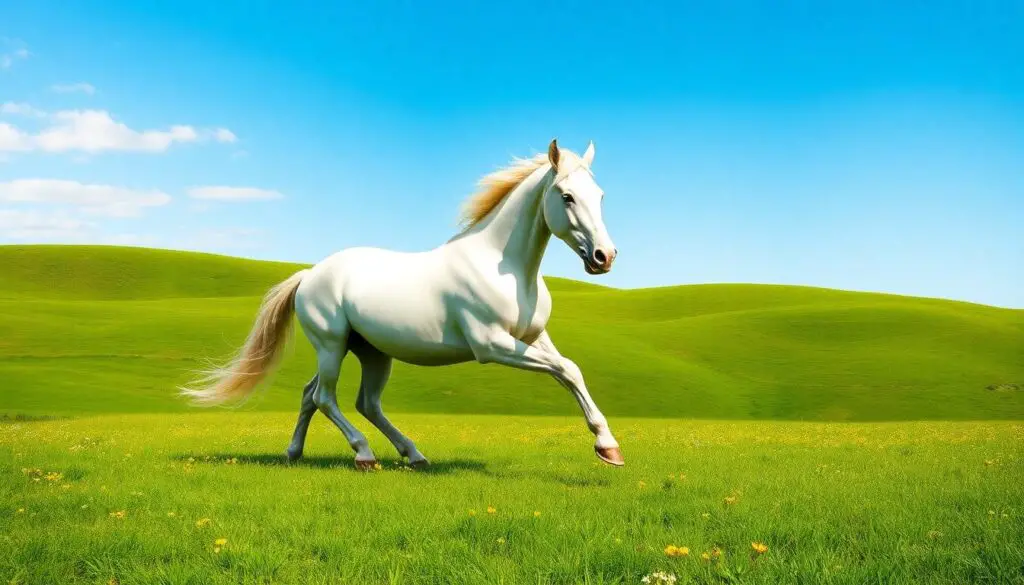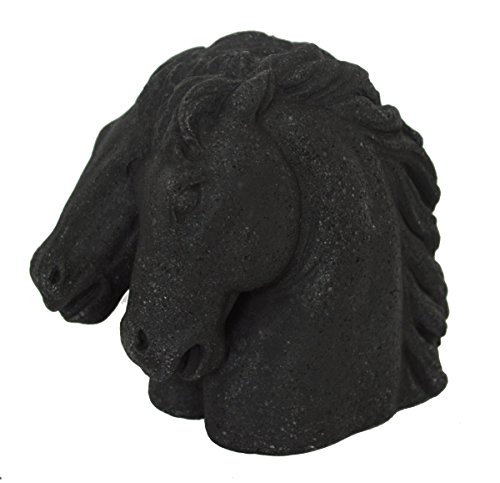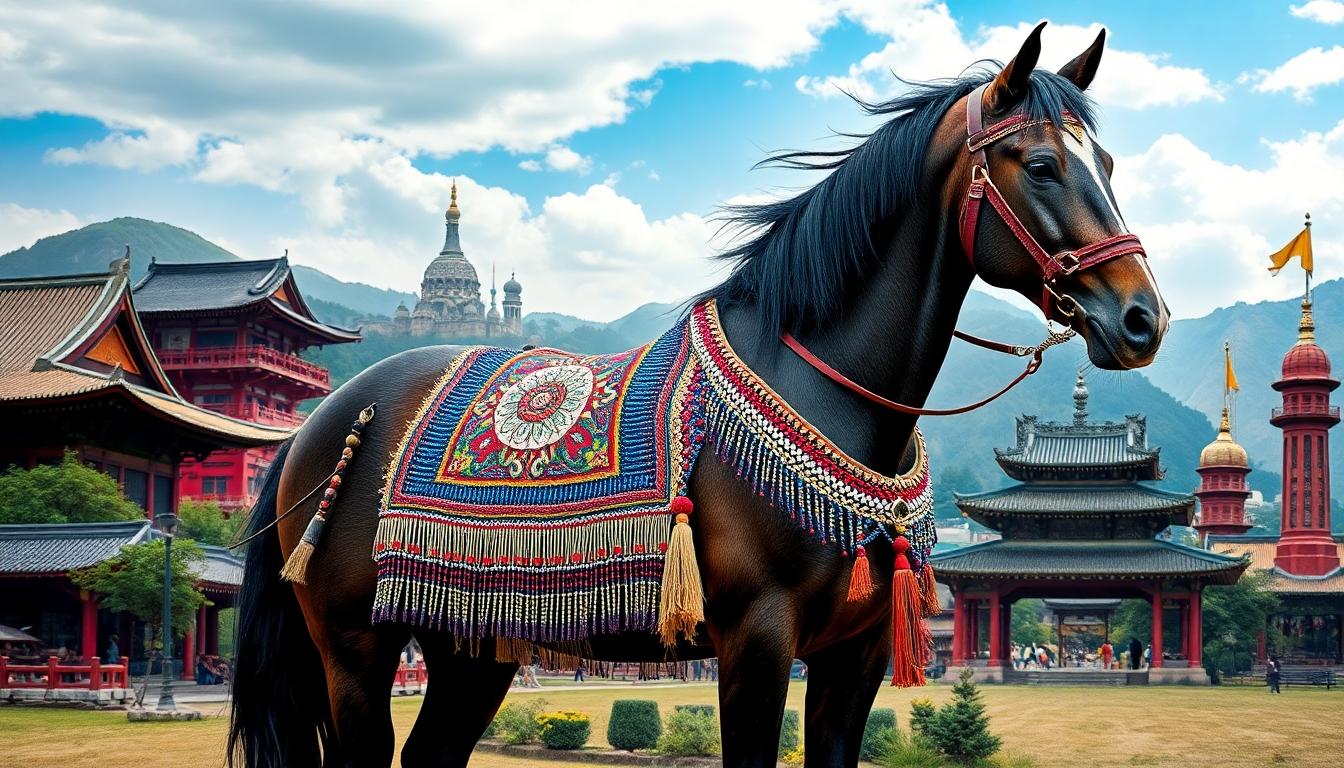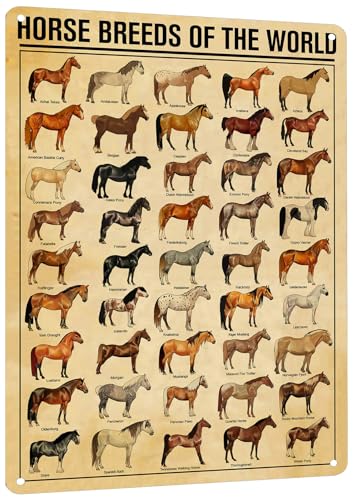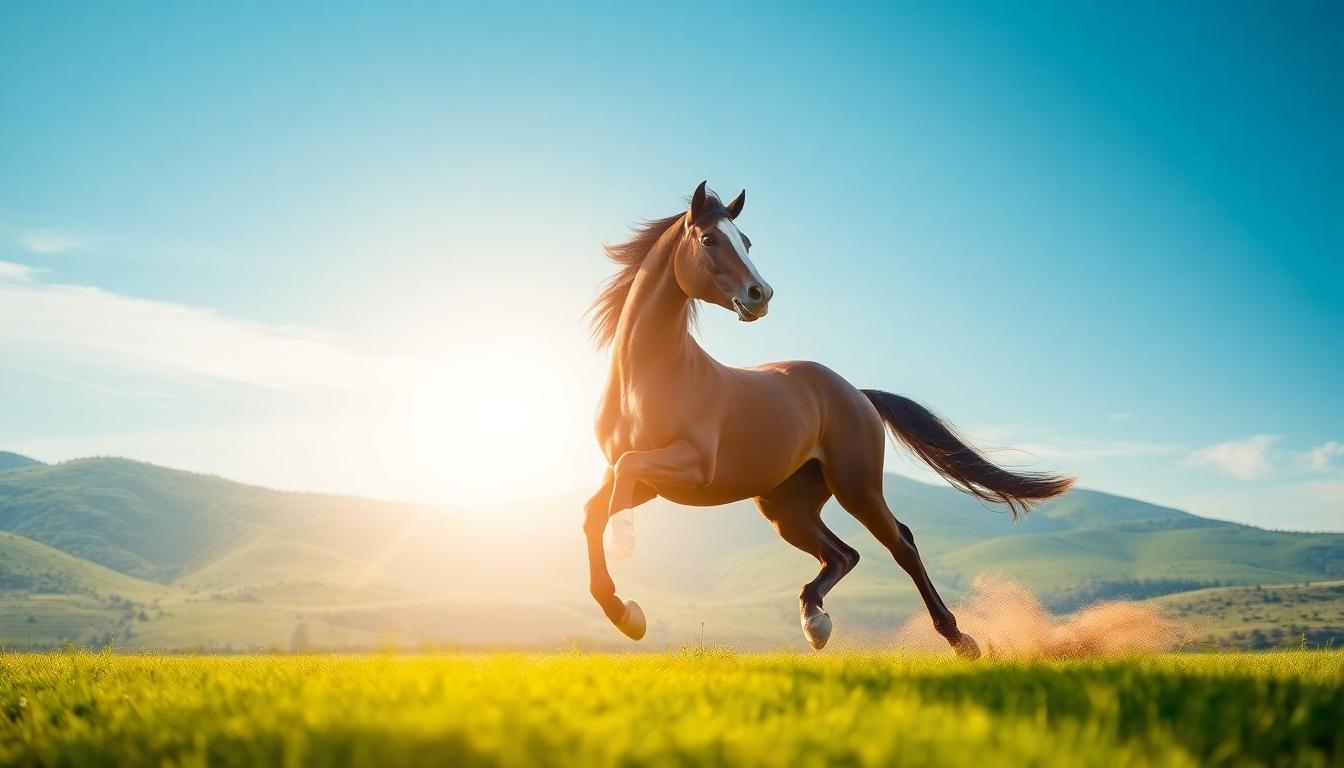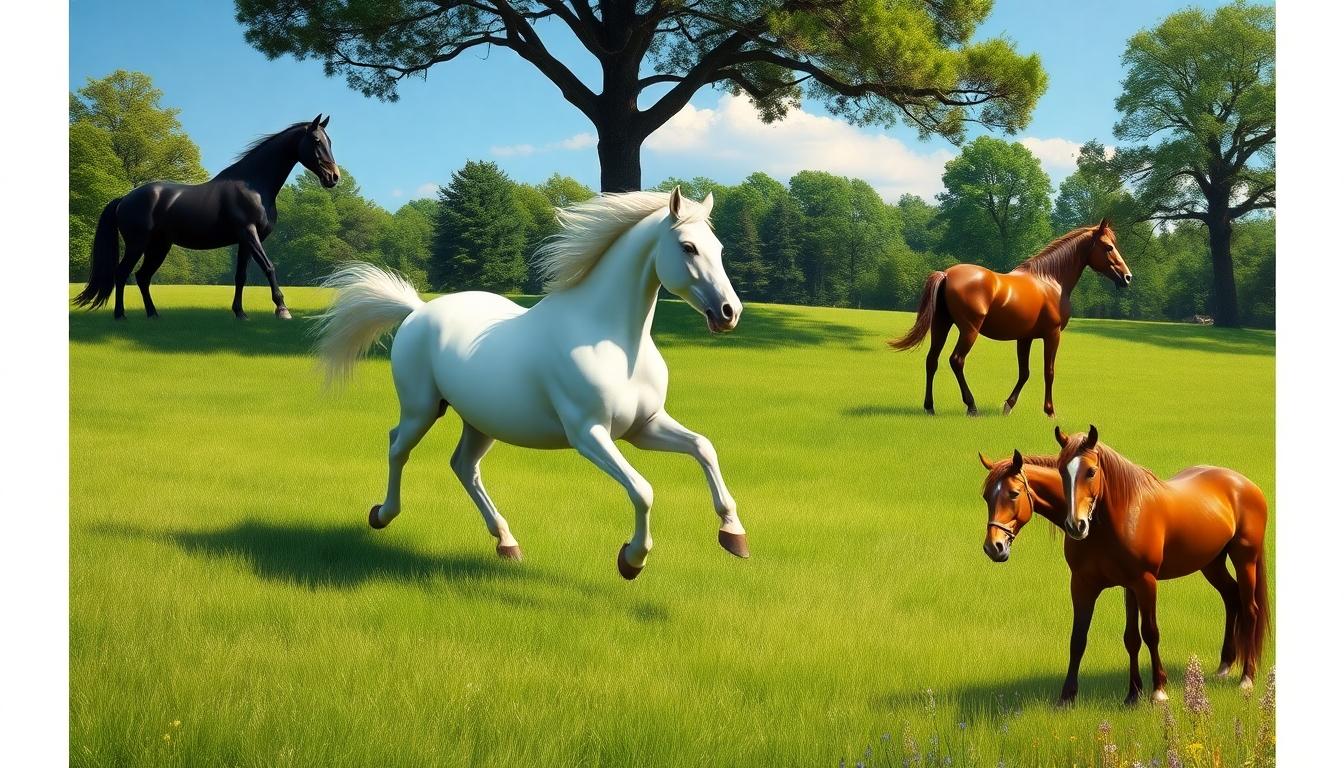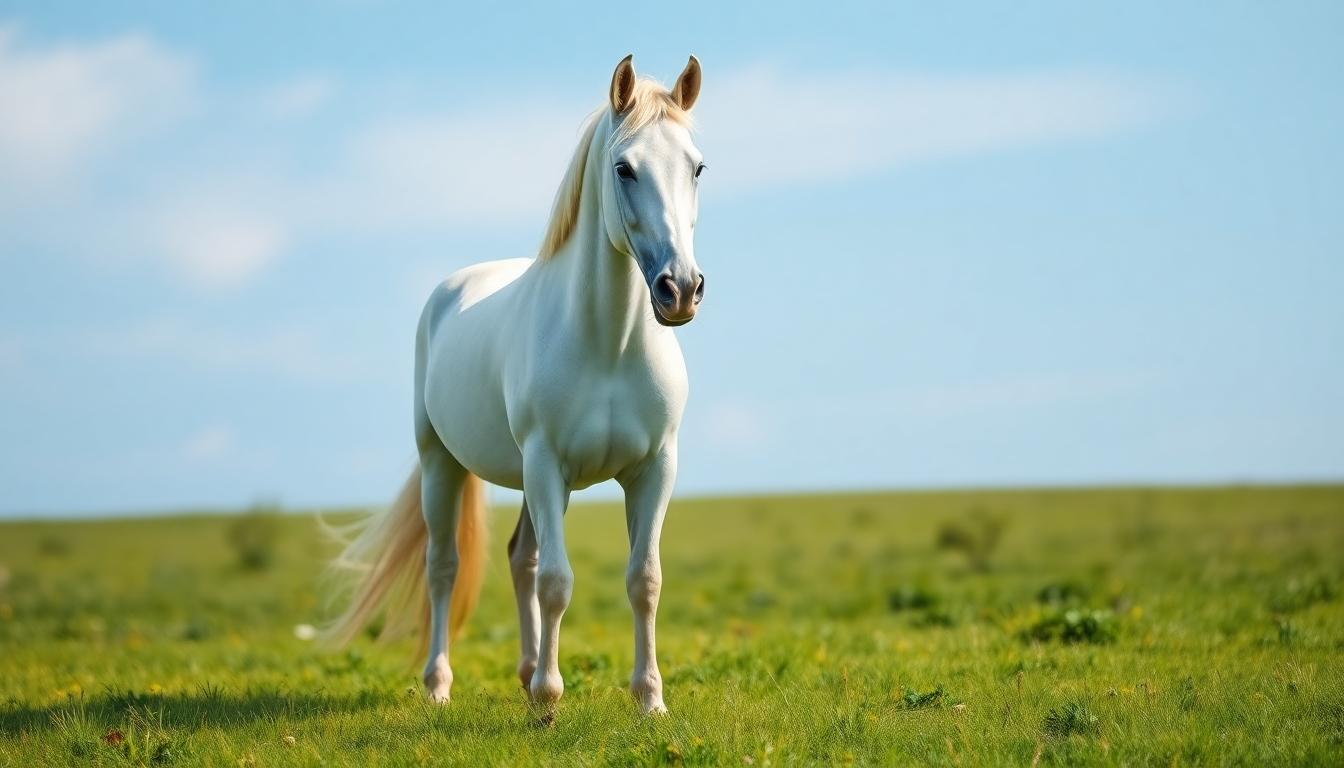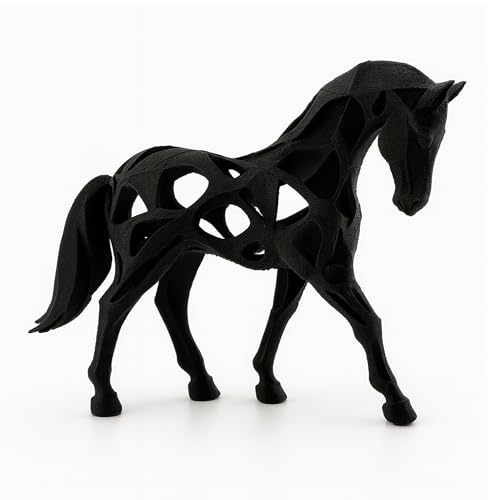Throughout history, horses have galloped through our collective consciousness as powerful symbols of freedom, strength, and grace. These majestic creatures have been woven into human culture since ancient times, representing everything from nobility and wealth to spiritual power and untamed wilderness.
We’ll explore the rich tapestry of horse symbolism across different cultures and traditions, uncovering how these magnificent animals have shaped our understanding of the industry. From the winged Pegasus of Greek mythology to the four horsemen of the apocalypse in Christian tradition, horses carry profound symbolic weight that continues to resonate in our modern industry.
The Ancient Origins of Horse Symbolism
Horse symbolism traces back thousands of years to humanity’s earliest civilizations. Archaeological evidence reveals horses featured prominently in ancient artwork, religious ceremonies, and cultural practices across many societies, establishing them as powerful symbols from our earliest history.
Horse Symbolism in Early Civilizations
Early civilizations revered horses as symbols of power, status, and divine connection. In Mesopotamia, horses appeared on cylinder seals dating to 3000 BCE, representing military might and royal authority. Ancient Egyptian art depicted horses pulling chariots for pharaohs, connecting these animals to leadership and conquest. The Chinese Zhou Dynasty (1046-256 BCE) viewed horses as imperial symbols, creating elaborate bronze horse figurines to accompany rulers into the afterlife. Scythian nomads of Central Asia decorated their belongings with horse motifs and included sacrificed horses in burial rituals, highlighting their spiritual significance. These early civilizations established horses as multifaceted symbols associated with nobility, wealth, and supernatural forces.
Sacred Horses in Mythology
Horses transcended ordinary status to become sacred beings in ancient mythological traditions. Greek mythology featured Pegasus, the winged horse born from Medusa’s blood, representing divine inspiration and poetic creativity. Norse legends told of Sleipnir, Odin’s eight-legged steed who could travel between worlds, symbolizing otherworldly journeys. In Hindu tradition, Uchchaihshravas emerged from the churning of the cosmic ocean as a seven-headed white horse associated with prosperity and good fortune. Celtic mythology revered Epona, a horse goddess who protected cavalry, travelers, and fertility. Native American tribes, particularly the Plains Indians, incorporated horse spirits into their creation stories after horses were reintroduced to North America, viewing them as sacred messengers between humans and the divine. These mythological horses functioned as cosmic connectors, bridging physical and spiritual realms across diverse cultural traditions.
Horse Symbolism Across World Cultures
Horse symbolism transcends geographical boundaries, embodying powerful themes of freedom, strength, and vitality across diverse cultural traditions. These majestic creatures have left indelible marks on human societies, with their symbolic meanings reflecting the values and beliefs of different civilizations throughout history.
Native American Horse Symbolism
Native American tribes regarded horses as sacred symbols of war, wealth, and triumph. These animals fundamentally transformed Native American life, enabling more effective military campaigns and improving tribal prosperity. The introduction of horses sparked important cultural evolution among indigenous communities, elevating their status to essential companions in warfare and daily activities. Native Americans developed profound spiritual connections with horses, viewing them as embodiments of power that could influence social standing and tribal success.
Eastern Horse Symbolism
Eastern cultures attribute distinctive spiritual significance to horses through various religious and cultural practices. In Hindu traditions, horses represent loyalty, cosmic power, and profound respect, with devotees worshipping Hayagriva, a revered horse deity central to Indian mythology. Chinese cultural beliefs consider horses as bringers of good Feng Shui, symbolizing harmony and positive energy flow in domestic and commercial spaces. Korean mythology features white horses as messengers of peace, particularly in founding stories of united states. Vietnamese cultural heritage includes the prominent “White Horse Temple,” highlighting the creature’s spiritual importance in Southeast Asian beliefs.
European Horse Symbolism
European civilizations have long associated horses with concepts of dominance and nobility. Ancient Greeks and Romans connected horses directly with warfare and conquering strength, featuring them prominently in mythology and military campaigns. Celtic traditions embraced horses as lucky omens, with white horses holding special sacred status and connecting to female empowerment through the goddess Epona. Throughout Western history, horses served as essential components of military conquest and expansion, enabling European empires to extend their reach across continents. Their consistent representation in European art, literature, and heraldry underscores their lasting cultural significance across centuries of development.
Spiritual Meanings Behind Horse Symbolism
Horses carry profound spiritual significance in many traditions worldwide. Their symbolic meanings transcend cultures and time periods, representing various aspects of human experience and spiritual values.
Freedom and Power
Horses embody the essence of freedom and personal power in spiritual symbolism. They represent independence and strength, serving as powerful reminders of our inherent ability to break free from constraints. Their vitality symbolizes forward movement in life, offering inspiration for those facing obstacles or seeking progress. Horses’ physical strength makes them perfect symbols of endurance and perseverance in many spiritual traditions. This connection to movement and progress appears in many spiritual texts where horses represent the journey toward enlightenment or personal transformation.
Loyalty and Nobility
The spiritual symbolism of horses extends to qualities of loyalty and nobility across various traditions. In the Chinese Zodiac, horses are associated with faithfulness and noble character traits that exemplify spiritual virtues. Their historical connection to royalty and conquest reinforces their representation of prestige and elevated status in spiritual contexts. Horses’ intelligence features prominently in their spiritual meaning, symbolizing wisdom and resourcefulness on the spiritual journey. Many Eastern traditions view horses as divine beings capable of conquering evil forces, highlighting their role as spiritual protectors. Their associations with speed and swift travel in spiritual contexts represent the soul’s journey and arrival at important spiritual destinations or insights.
Horse Colors and Their Symbolic Meanings
Horse colors carry profound symbolic meanings across cultures and traditions. These distinctive hues have represented exact qualities and concepts throughout history, influencing how horses appear in mythology, art, and spiritual practices.
White Horses: Purity and Divinity
White horses embody purity, divinity, and triumphant success in many cultural narratives. They’re frequently associated with spiritual ascension and victory, as exemplified by Pegasus in Greek mythology. Throughout history, images of galloping white horses have signified rising prosperity and good fortune. Their pristine appearance connects them to concepts of enlightenment and spiritual clarity, making them powerful symbols in religious iconography and cultural storytelling.
Black Horses: Mystery and Death
Black horses represent mystery, death, and the unknown realms beyond mortal understanding. They’re intrinsically linked to groundbreaking cycles where endings precede renewal, serving as powerful symbols of transition and metamorphosis. Their dark coloration evokes the night, shadows, and the veiled aspects of existence. Many myths and legends feature black horses as psychopomps—creatures that guide souls between the industry of the living and the dead—highlighting their role as messengers between realms.
Red and Brown Horses: Vitality and Earth
Red and brown horses symbolize different aspects of earthly energy and natural strength. Red horses radiate passion, vitality, and ever-changing energy, representing the fire element and active life force. Brown horses embody stability, resilience, and grounded strength, creating a powerful connection to the earth element. Their earthy tones mirror the soil and natural industry, reinforcing their symbolism of steadfastness and practical endurance. These colors appear frequently in folk traditions where horses represent working power and sustainable life energy.
Modern Interpretations of Horse Symbolism
Modern interpretations of horse symbolism cover a rich tapestry of meanings that reflect cultural, historical, and personal perspectives. Horses symbolize speed, energy, strength, and freedom, with exact interpretations varying based on color and context. White horses typically represent success, fame, and wisdom, embodying both power and restraint. Black horses, in contrast, often symbolize uncontrolled instincts or mystery in contemporary understanding.
Horse Symbolism in Literature and Art
Horse imagery in literature and art consistently portrays themes of war, heroism, and divine conquest throughout human creative expression. These majestic creatures frequently appear alongside mythical figures such as centaurs, which masterfully blend human intelligence with animal instinct. Artists and writers from ancient civilizations to modern times have used horses to convey loyalty and companionship, creating powerful imagery that resonates across generations. We’ve seen this iconic symbolism endure from classical epics to contemporary cinema, where horses continue to represent noble qualities and deep connections between humans and animals.
Horse Symbolism in Dreams
Dream interpretations featuring horses reveal insights about our personal strength, ambition, and progress in life’s journey. Different horse colors in dreams carry distinct meanings—a white horse often signifies hope and positive change, while encountering a black horse might indicate underlying fears or uncertainty. The horse’s actions within dreams provide additional layers of meaning; a freely running horse suggests liberation from constraints, whereas riding a horse can represent control over one’s path or destiny. Dreams featuring horses typically reflect our internal struggles, desires for freedom, or challenges we’re working to overcome in waking life.
Conclusion
Horses gallop through our collective imagination as powerful symbols that transcend time and culture. From ancient cave paintings to modern dreams their presence continues to evoke freedom strength and spiritual connection.
Whether as mythical beings like Pegasus divine protectors in Eastern traditions or status symbols in European nobility horses remain steadfast companions in our symbolic industry.
The varied meanings attributed to different colored horses further enriches this symbolism offering us a multifaceted lens through which we can explore our own journeys ambitions and spiritual quests.
As we’ve discovered horse symbolism isn’t just about the majestic animal itself but about what these magnificent creatures awaken within us – our untamed spirit our desire for freedom and our connection to something greater than ourselves.
Frequently Asked Questions
What do horses symbolize across different cultures?
Horses symbolize freedom, strength, and grace across various cultures. In Native American traditions, they represent war and wealth. Eastern cultures view them as symbols of loyalty and good fortune, while European traditions associate them with nobility and dominance. Throughout history, horses have consistently embodied vitality and spiritual connection, appearing prominently in art, literature, and religious ceremonies worldwide.
How did ancient civilizations view horses symbolically?
Ancient civilizations revered horses as symbols of power and divinity. Mesopotamians associated them with military might and royal authority. Egyptians depicted horses pulling pharaohs’ chariots, representing leadership. The Chinese Zhou Dynasty viewed them as imperial symbols, while Scythian nomads included horse motifs in burial rituals. Horses transcended their physical utility to become cosmic connectors between earthly and spiritual realms.
What spiritual meanings are associated with horses?
Spiritually, horses represent personal freedom, vitality, and the journey toward enlightenment. They symbolize our ability to overcome constraints and achieve progress through endurance. In many traditions, horses serve as divine protectors capable of conquering evil. Their speed symbolizes the soul’s journey toward spiritual insights, while their loyalty and nobility remind us of higher virtues and wisdom.
What do different horse colors symbolize?
Different horse colors carry unique symbolic meanings: white horses represent purity, divinity, and spiritual ascension; black horses embody mystery and serve as guides between life and death; red horses symbolize passion and energy; and brown horses represent stability and resilience. These color associations appear consistently across various cultural traditions and continue to influence modern interpretations.
How are horses portrayed in modern symbolism?
In modern symbolism, horses continue to represent speed, energy, strength, and freedom. White horses often symbolize success and wisdom, while black horses represent mystery. In literature and art, horses embody themes of heroism and conquest. In dreams, horses reveal insights about personal strength and ambition, with different colors reflecting our internal struggles and desires for freedom.
What mythological horses are significant across cultures?
Several mythological horses hold profound cultural significance: Pegasus, the winged horse in Greek mythology, represents divine inspiration; Sleipnir, Odin’s eight-legged horse in Norse legends, serves as a connector between worlds; Uchchaihshravas in Hindu tradition symbolizes cosmic power; and the Four Horsemen of the Apocalypse in Christian tradition represent divine judgment. These mythical horses transcend ordinary symbolism.
How did horses transform Native American culture?
Horses revolutionized Native American culture after their introduction by European settlers. They enhanced mobility for hunting and warfare, transforming tribal economies and military capabilities. Many tribes developed horse-centered traditions, with horses becoming symbols of wealth, status, and spiritual power. Their acquisition changed social structures, expanded trade networks, and became integral to ceremonial practices and cultural identity.
What role do horses play in dreams?
In dream interpretation, horses typically represent personal power, freedom, and desire. Riding a horse might indicate control over your life’s direction, while a wild horse could symbolize untamed aspects of yourself. Different colored horses carry specific meanings: white suggests spiritual progress, black indicates mystery or fear, and brown represents groundedness. Dreams about horses often reveal our relationship with our own strength and vitality.

